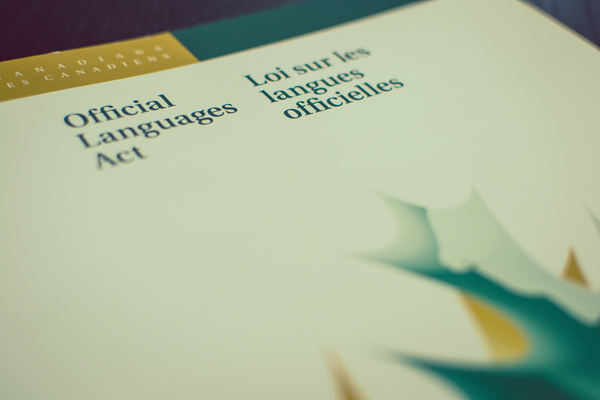Article
Landlord and Tenant Law
Landlord and tenant law, governed by provincial statutes and judge-made law, varies considerably from province to province. Essentially, a landlord and tenant relationship is contractual (see CONTRACT LAW).

Enter your search term
Signing up enhances your TCE experience with the ability to save items to your personal reading list, and access the interactive map.
Create AccountArticle
Landlord and tenant law, governed by provincial statutes and judge-made law, varies considerably from province to province. Essentially, a landlord and tenant relationship is contractual (see CONTRACT LAW).
"https://www.thecanadianencyclopedia.ca/images/tce_placeholder.jpg?v=e9dca980c9bdb3aa11e832e7ea94f5d9" // resources/views/front/categories/view.blade.phphttps://www.thecanadianencyclopedia.ca/images/tce_placeholder.jpg?v=e9dca980c9bdb3aa11e832e7ea94f5d9

Macleans
It began with equal French and English lettering on a store sign, escalated with a $75 fine under Quebec's language laws - and ended with a court victory for Gwen Simpson and Wally Hoffmann.This article was originally published in Maclean's Magazine on November 1, 1999
"https://www.thecanadianencyclopedia.ca/images/tce_placeholder.jpg?v=e9dca980c9bdb3aa11e832e7ea94f5d9" // resources/views/front/categories/view.blade.phphttps://www.thecanadianencyclopedia.ca/images/tce_placeholder.jpg?v=e9dca980c9bdb3aa11e832e7ea94f5d9

Article
Language policy is comprised of a body of theory, principles, laws, programs and measures designed to manage one or more languages in a country. In monolingual societies, language policy is usually concerned with promoting an approved, standardized grammar of the common language. In bilingual or multilingual societies, it is intended to manage situations in which two or more languages are in contact and/or conflict, and to enhance the use and status of certain languages over others. Language policy in Canada has been designed to manage historical relationships among multiple languages – notably French, English and Indigenous languages - and their various communities. While it has evolved over time, Canadian language policy has not always been marked by positive or just measures.
"https://d3d0lqu00lnqvz.cloudfront.net/media/media/40e047e3-6acc-474f-b2c6-76d673b789bc.jpg" // resources/views/front/categories/view.blade.phphttps://d3d0lqu00lnqvz.cloudfront.net/media/media/40e047e3-6acc-474f-b2c6-76d673b789bc.jpg

Macleans
JUST ABOUT everybody breathlessly described Jean Brault's testimony as explosive.This article was originally published in Maclean's Magazine on April 18, 2005
"https://www.thecanadianencyclopedia.ca/images/tce_placeholder.jpg?v=e9dca980c9bdb3aa11e832e7ea94f5d9" // resources/views/front/categories/view.blade.phphttps://www.thecanadianencyclopedia.ca/images/tce_placeholder.jpg?v=e9dca980c9bdb3aa11e832e7ea94f5d9

Macleans
This article was originally published in Maclean’s magazine on November 17, 1997. Partner content is not updated. Robert Latimer watches in detached amusement as a kitten plays with his shoelaces. It is the day after a second jury has found him guilty of second-degree murder, and he is relaxing with half a dozen relatives on the deck in front of his modest farmhouse in Wilkie, Sask.
"https://www.thecanadianencyclopedia.ca/images/tce_placeholder.jpg?v=e9dca980c9bdb3aa11e832e7ea94f5d9" // resources/views/front/categories/view.blade.phphttps://www.thecanadianencyclopedia.ca/images/tce_placeholder.jpg?v=e9dca980c9bdb3aa11e832e7ea94f5d9

Macleans
A hundred and seventy years ago in England, about 200 crimes carried the death penalty. People were publicly hanged for offences ranging from murder to the theft of food or pocket change.This article was originally published in Maclean's Magazine on December 15, 1997
"https://www.thecanadianencyclopedia.ca/images/tce_placeholder.jpg?v=e9dca980c9bdb3aa11e832e7ea94f5d9" // resources/views/front/categories/view.blade.phphttps://www.thecanadianencyclopedia.ca/images/tce_placeholder.jpg?v=e9dca980c9bdb3aa11e832e7ea94f5d9

Editorial
The following article is an editorial written by The Canadian Encyclopedia staff. Editorials are not usually updated.
"https://d3d0lqu00lnqvz.cloudfront.net/media/media/e90e0bdd-a0d0-4752-8a94-52946de0b4d9.jpg" // resources/views/front/categories/view.blade.phphttps://d3d0lqu00lnqvz.cloudfront.net/media/media/e90e0bdd-a0d0-4752-8a94-52946de0b4d9.jpg

Article
The Lavell case (AG v. Lavell) was a challenge to Canadian law as it related to Indigenous women’s rights under section 12(1)(b) of the Indian Act. As the case moved through the court system, it merged with R v. Bédard and mounted a significant challenge against the patriarchal (male-dominated) and sexist nature of constitutional law in Canada.
"https://www.thecanadianencyclopedia.ca/images/tce_placeholder.jpg?v=e9dca980c9bdb3aa11e832e7ea94f5d9" // resources/views/front/categories/view.blade.phphttps://www.thecanadianencyclopedia.ca/images/tce_placeholder.jpg?v=e9dca980c9bdb3aa11e832e7ea94f5d9

Article
Law governs the relationship of society's individual members to each other and to society as a whole. Every human society has a legal system, because every society must attempt to resolve the basic conflict between the needs of the individual and those of the community.
"https://www.thecanadianencyclopedia.ca/images/tce_placeholder.jpg?v=e9dca980c9bdb3aa11e832e7ea94f5d9" // resources/views/front/categories/view.blade.phphttps://www.thecanadianencyclopedia.ca/images/tce_placeholder.jpg?v=e9dca980c9bdb3aa11e832e7ea94f5d9

Article
One of the most historic ideas about the LAW is that it is based on human nature or reason, and therefore simply reflects what is natural or reasonable, enabling society to function in a just and effective manner.
"https://www.thecanadianencyclopedia.ca/images/tce_placeholder.jpg?v=e9dca980c9bdb3aa11e832e7ea94f5d9" // resources/views/front/categories/view.blade.phphttps://www.thecanadianencyclopedia.ca/images/tce_placeholder.jpg?v=e9dca980c9bdb3aa11e832e7ea94f5d9

Article
Operating in a libertarian climate, the Canadian media are mainly unhampered by licensing and little affected by prior CENSORSHIP.
"https://d3d0lqu00lnqvz.cloudfront.net/media/media/eb6ec132-1f25-4df9-b54d-d101ef2e4e7e.jpg" // resources/views/front/categories/view.blade.phphttps://d3d0lqu00lnqvz.cloudfront.net/media/media/eb6ec132-1f25-4df9-b54d-d101ef2e4e7e.jpg

Article
Law Enforcement refers to the application or threat of legally permitted sanctions to induce compliance with legal rules.
"https://www.thecanadianencyclopedia.ca/images/tce_placeholder.jpg?v=e9dca980c9bdb3aa11e832e7ea94f5d9" // resources/views/front/categories/view.blade.phphttps://www.thecanadianencyclopedia.ca/images/tce_placeholder.jpg?v=e9dca980c9bdb3aa11e832e7ea94f5d9

Article
Law of evidence, the body of regulations governing the proof of the existence of a fact before a court. It falls under federal and provincial legislation. In matters governed by the former, provisions of the Canada Evidence Act must be applied. Common law must also be applied.
"https://www.thecanadianencyclopedia.ca/images/tce_placeholder.jpg?v=e9dca980c9bdb3aa11e832e7ea94f5d9" // resources/views/front/categories/view.blade.phphttps://www.thecanadianencyclopedia.ca/images/tce_placeholder.jpg?v=e9dca980c9bdb3aa11e832e7ea94f5d9

Article
In Canadian law, fiduciary obligation refers to a relationship in which one party (the fiduciary) is responsible for looking after the best interests of another party (the beneficiary). The courts have determined that a fiduciary obligation exists where the fiduciary can exercise some discretion or power, and they do so in a way that affects the interests of the beneficiary. In these relationships, the beneficiary is in a position of vulnerability at the hands of the fiduciary.
"https://www.thecanadianencyclopedia.ca/images/tce_placeholder.jpg?v=e9dca980c9bdb3aa11e832e7ea94f5d9" // resources/views/front/categories/view.blade.phphttps://www.thecanadianencyclopedia.ca/images/tce_placeholder.jpg?v=e9dca980c9bdb3aa11e832e7ea94f5d9

Article
Law of the Sea, for about 300 years, was to a large extent determined by principles of customary law. Coastal states claimed sovereignty over a narrow belt of territorial sea; on the rest of the seas (the "high seas"), the basic principle of freedom of the seas reigned.
"https://www.thecanadianencyclopedia.ca/images/tce_placeholder.jpg?v=e9dca980c9bdb3aa11e832e7ea94f5d9" // resources/views/front/categories/view.blade.phphttps://www.thecanadianencyclopedia.ca/images/tce_placeholder.jpg?v=e9dca980c9bdb3aa11e832e7ea94f5d9
